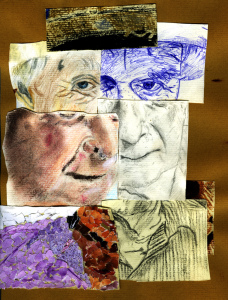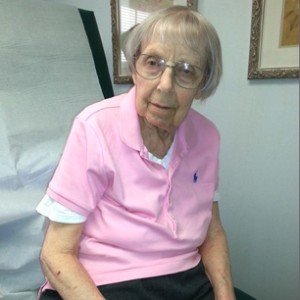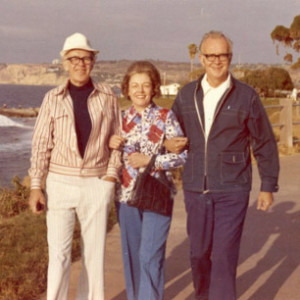 Easter Sunday and reflecting as we head into spring…I took care of my mother with dementia as her mother took care of her father with the same disease. It was the hardest thing that I’ve ever done. She died 2 years ago and not a day passes that I am not grateful to have taken care of her. It took 8 years of my life but I’m not sorry. Through the earlier years, we didn’t always have a great relationship, but in those 8 years while I was taking care of her, we were able to make our peace. I learned things about her that I had never known before which is a direct statement to who I am today.
Easter Sunday and reflecting as we head into spring…I took care of my mother with dementia as her mother took care of her father with the same disease. It was the hardest thing that I’ve ever done. She died 2 years ago and not a day passes that I am not grateful to have taken care of her. It took 8 years of my life but I’m not sorry. Through the earlier years, we didn’t always have a great relationship, but in those 8 years while I was taking care of her, we were able to make our peace. I learned things about her that I had never known before which is a direct statement to who I am today.
I have often wondered why people with dementia are always looking and searching for their mother. It seems to be a common theme in the dementia – Alzheimer’s world. My mother was no different in that searching for her mother was a way of life around here. Well, since my mother died, I think of her everyday. It’s not an understandable train of thought until the day comes where we find ourselves parent-less. I’ve come to believe that we all face this common feeling once we lose our mother, or dominant parent. By dominant I mean, the parent who mostly raised you, right there in the trenches with you.
I belong to a generation of baby-boomers who find ourselves approaching old age, in the last third stretch of time in our lives. With that, we are facing the largest dementia – Alzheimer’s related population in history. Much has been written on the subject with little solution added to the conversation. My mother’s generation, and the generation before her, luckily came from roots where you take care of your family, and that meant in old age as well. My grandmother took care of her mother, her mother-in-law and even sister-in-law when they could no longer care for themselves and my mother was lucky enough to have me. But not all people of my generation are able to take care of sick and aging parents. In today’s world, we all have to work and earn a living. Even in a 2 person household, more than likely, both people will need to work in order to have a house and food on the table for their family. The past 2 generations had a very different life than people of today, not always, but usually it was the man who went to work and the woman would stay home to tend to the house and kids. It was a less complicated life than we face today and I am guessing that this is only the tip of the iceberg. We live in a very complicated, busy and turbulent world. Our children and grand children’s lives will be more complicated and busy that ours, which seems like a scary thought to me.
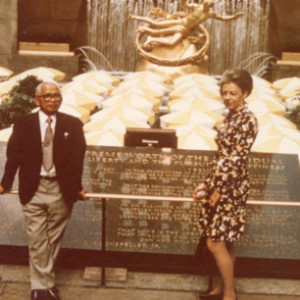 With all of that said, where does that leave the aging and sick baby-boomers who are coming of age everyday? A lot of us don’t have retirement savings because we are the transitional generation on the cusp of pension and a do-it-yourself retirement savings. And if you were lucky enough not to work while your kids were growing up, you are really finding yourself in a bad position right about now. Take it one step further, if you are a divorced woman, chances are that you have absolutely zero retirement savings because you need your paycheck to live. So what if you start developing this dreaded disease of dementia or Alzheimers? Your busy kids will probably not want or be able to take responsibility with their busy lives. Being a caretaker for people afflicted with this disease is a full time job and as we know, most of us must have a full time job to survive just to have a basic life. Do we all go into nursing homes, god forbid? Do we end up on social services? It’s a modern day dilemma plaguing the baby-boomer generation and their children.
With all of that said, where does that leave the aging and sick baby-boomers who are coming of age everyday? A lot of us don’t have retirement savings because we are the transitional generation on the cusp of pension and a do-it-yourself retirement savings. And if you were lucky enough not to work while your kids were growing up, you are really finding yourself in a bad position right about now. Take it one step further, if you are a divorced woman, chances are that you have absolutely zero retirement savings because you need your paycheck to live. So what if you start developing this dreaded disease of dementia or Alzheimers? Your busy kids will probably not want or be able to take responsibility with their busy lives. Being a caretaker for people afflicted with this disease is a full time job and as we know, most of us must have a full time job to survive just to have a basic life. Do we all go into nursing homes, god forbid? Do we end up on social services? It’s a modern day dilemma plaguing the baby-boomer generation and their children.
Photos: Above (1): Eleanor Van Meter with her husband Dwight to the left and a friend of theirs to the right. This was the happiest time of her life. (2) Mom (Eleanor) at Rockefeller Center, where she worked posing for a photo. On the back of this photo she noted that she has no idea who the man is! Below (3): Lynn on Easter Sunday in Hicksville at 6 years old (that old car is scary).
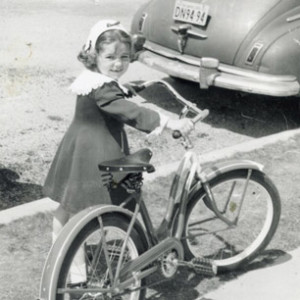 All of these heavy thoughts on this Easter Sunday. Again, thinking of my own mother today since she got her wings two years ago. I can remember when I was a kid…Easter morning was usually at my maternal grandparents house. After church, it was the usual Easter basket with all the traditional Easter candy. Finding all the colored Easter eggs that were hidden around the house. They would always make me get dressed up in a Easter outfit with a hat, white ankle socks and patent leather shoes, a tomboy’s worst nightmare. Sometimes, my father would come to visit, bring goodies and we all would sit at the table eating a nice holiday dinner that my grandmother would cook for us. After dinner, all the adults would sit in the kitchen and talk for hours, usually politics and I would sneak down the hallway to watch them, even though I wasn’t the slightest bit interested. It was fun to watch them though.
All of these heavy thoughts on this Easter Sunday. Again, thinking of my own mother today since she got her wings two years ago. I can remember when I was a kid…Easter morning was usually at my maternal grandparents house. After church, it was the usual Easter basket with all the traditional Easter candy. Finding all the colored Easter eggs that were hidden around the house. They would always make me get dressed up in a Easter outfit with a hat, white ankle socks and patent leather shoes, a tomboy’s worst nightmare. Sometimes, my father would come to visit, bring goodies and we all would sit at the table eating a nice holiday dinner that my grandmother would cook for us. After dinner, all the adults would sit in the kitchen and talk for hours, usually politics and I would sneak down the hallway to watch them, even though I wasn’t the slightest bit interested. It was fun to watch them though.
There were a lot of good memories from back then, but I find this Easter to be a very reflective day. I’m guessing that this part of our lives is meant to be a reflective time and even more so, at my mother’s age when she was so seriously looking for her own mother as if to be on a mission when her memory failed her. It’s almost as if we go into a default mode when the brain starts malfunctioning. We are always searching for the good old days and the people who were in them.

![new pen.color [Converted]](http://boomerang-parents.com/wp-content/uploads/2014/11/leave-message-Converted.jpg)


